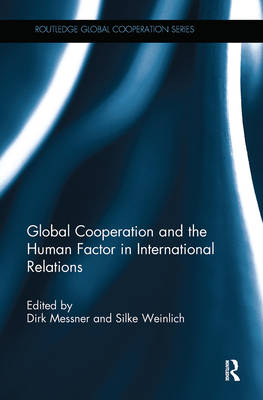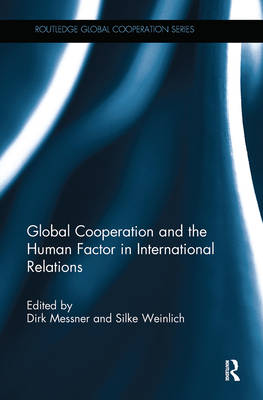
- Afhalen na 1 uur in een winkel met voorraad
- Gratis thuislevering in België
- Ruim aanbod met 7 miljoen producten
- Afhalen na 1 uur in een winkel met voorraad
- Gratis thuislevering in België
- Ruim aanbod met 7 miljoen producten
Global Cooperation and the Human Factor in International Relations
Omschrijving
This book aims to pave the way for a new interdisciplinary approach to global cooperation research. It does so by bringing in disciplines whose insights about human behaviour might provide a crucial yet hitherto neglected foundation for understanding how and under which conditions global cooperation can succeed.
As the first profoundly interdisciplinary book dealing with global cooperation, it provides the state of the art on human cooperation in selected disciplines (evolutionary anthropology and biology, decision-sciences, social psychology, complex system sciences), written by leading experts. The book argues that scholars in the field of global governance should know and could learn from what other disciplines tell us about the capabilities and limits of humans to cooperate. This new knowledge will generate food for thought and cause creative disturbances, allowing us a different interpretation of the obstacles to cooperation observed in world politics today. It also offers first accounts of interdisciplinary global cooperation research, for instance by exploring the possibilities and consequences of global we-identities, by describing the basic cooperation mechanism that are valid across disciplines, or by bringing an evolutionary perspective to diplomacy.
This book will be of great interest to scholars and postgraduates in International Relations, Global Governance and International Development.
Specificaties
Betrokkenen
- Uitgeverij:
Inhoud
- Aantal bladzijden:
- 290
- Taal:
- Engels
- Reeks:
Eigenschappen
- Productcode (EAN):
- 9780815355106
- Verschijningsdatum:
- 21/12/2017
- Uitvoering:
- Paperback
- Formaat:
- Trade paperback (VS)
- Afmetingen:
- 156 mm x 234 mm
- Gewicht:
- 408 g

Alleen bij Standaard Boekhandel
Beoordelingen
We publiceren alleen reviews die voldoen aan de voorwaarden voor reviews. Bekijk onze voorwaarden voor reviews.











